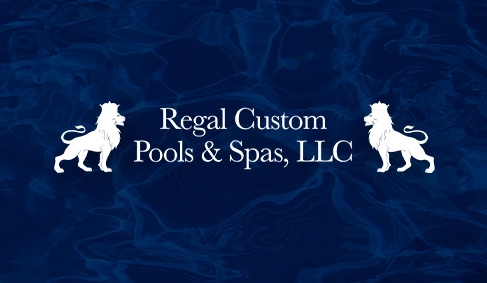How a Pool Works & Why It Needs Regular Care
While your swimming pool may be the star of your backyard or a key part of your family's fun days, it is also a complex system. At its core, a pool consists of:
- A water reservoir. This part of the pool is self-explanatory; it’s where your water is housed and where you swim.
- A filtration system. The filtration system, typically comprised of a pump, a filter (often a sand or cartridge filter), and valves, removes contaminants from the pool water.
- A circulation system. The circulation system, powered by the pump, ensures that water is constantly flowing through the filtration system, ensuring thorough cleaning.
- A sanitation system. The sanitation system is responsible for killing harmful bacteria and algae that can grow in the pool water. This is typically done using chlorine or other disinfectants.
Regular care is crucial for a swimming pool to function optimally and to have a safe swimming environment. Neglecting maintenance means:
- Accepting health risks. Dirty pool water can harbor harmful bacteria and algae, posing a health risk to swimmers.
- Risking equipment damage. Failure to maintain the filtration and circulation systems can lead to equipment damage and costly repairs.
- Losing aesthetic appeal. A dirty pool can be unsightly and unpleasant to swim in, and the longer you ignore maintenance, the dirtier your pool can get.
Understanding the Basics of Water Chemistry
Swimming pool water chemistry is a delicate balance of various chemical components. Key chemicals and levels include the following:
- pH. The pH level measures the acidity or alkalinity of the water. A pH level of 7.4-7.6 is generally considered ideal for swimming pools. If the pH is too low (acidic), the water can be irritating to the skin and eyes. If it's too high (alkaline), the water can become cloudy and promote the growth of algae.
- Alkalinity. Alkalinity is a measure of the water's ability to resist changes in pH. It's important to maintain a proper alkalinity level to prevent fluctuations in pH, which can affect the effectiveness of the sanitizer and the overall water quality.
- Calcium hardness. Calcium hardness refers to the amount of calcium and magnesium dissolved in the water. A balanced calcium hardness level is essential for preventing scale formation on pool surfaces and equipment. If the calcium hardness is too low, the water can become corrosive, while if it's too high, it can lead to scale buildup.
- Sanitizer levels. The sanitizer, typically chlorine or bromine, is responsible for killing bacteria and algae in the pool water. Maintaining the correct sanitizer level is crucial for ensuring the water is safe for swimming.
As a part of your maintenance routine, you will need to test the levels of these chemicals.
How to Take Care of Your Own Pool Maintenance
Cleaning Routine
Each week, you should complete the following tasks to clean your pool:
- Skim the pool twice per week. Every few days, take your skimming tool and clean any debris out of your pool. This practice doesn’t just help you remove leaves but also helps you increase the circulation system’s efficiency.
- Clean out the strainer basket. At least once per week, you should check and clean out the basket to help improve circulation and lower chlorine demands.
- Clean your tiles. To help remove and prevent calcium and algae buildup, you should brush the pool walls. The type of brush you need can vary based on the type of material your pool is made of; plaster-lined pools require a harsher brush than pools made of vinyl.
- Shock the pool. This can help rid your pool of bacteria or algae that is in your pool.
Inspection Schedule
You should also inspect the following components of your pool each week:
- Test the chlorine levels and check pH and alkalinity. As we mentioned, the chemical levels require a delicate balance.
- Check for leaks. Inspect the pool for any signs of leaks, such as wet areas around the pool or a dropping water level.
- Inspect the components of your pool. Make sure your pump, circulation system, and other pool systems are working.
- Maintain your automatic pool sweep. We recommend that you have an automatic pool sweep, and you should check and make sure it is functioning properly. A pool needs to be vacuumed to protect its pH levels, provide circulation to dead spots in the water, and keep organic material out of the pool.
Want Help Taking Care of Your Pool? Reach Out Today!
Regal Custom Pools & Spas, LLC has over 40 years of experience in helping home and business owners maintain their pools. We offer comprehensive maintenance services and can help you keep your pool looking and feeling good.
Call (972) 441-7335 to request a quote or service.

